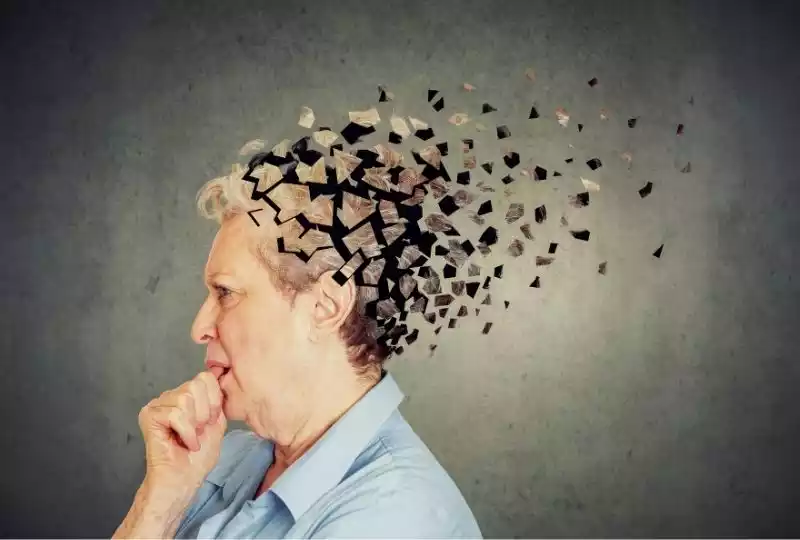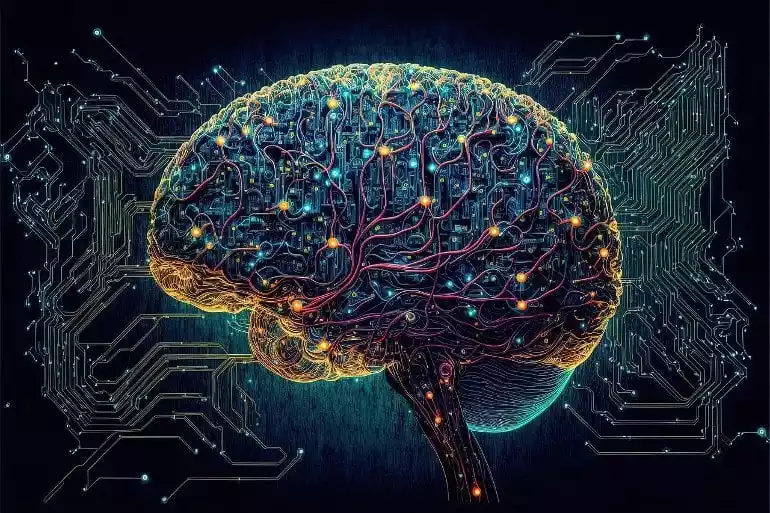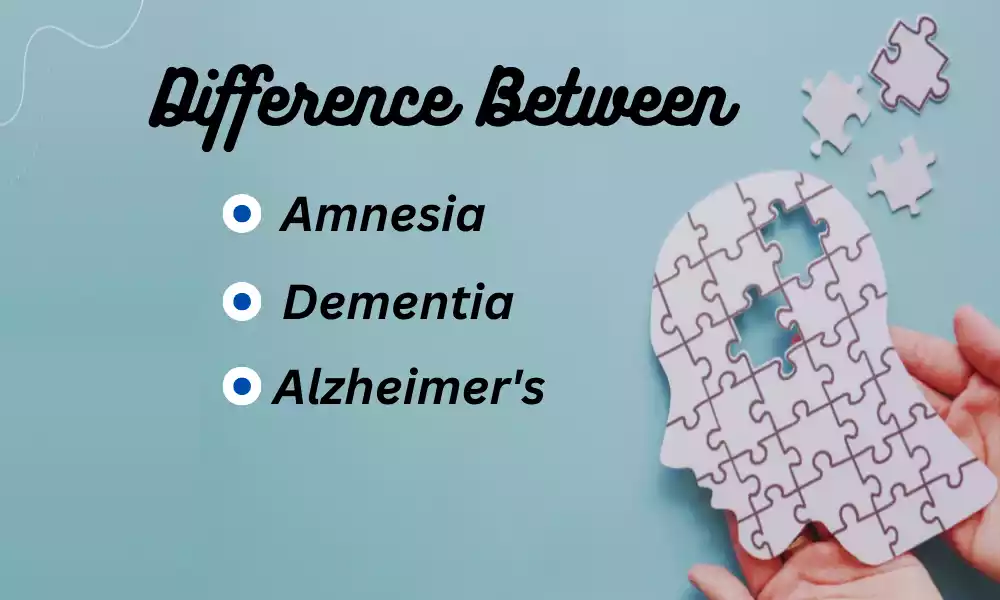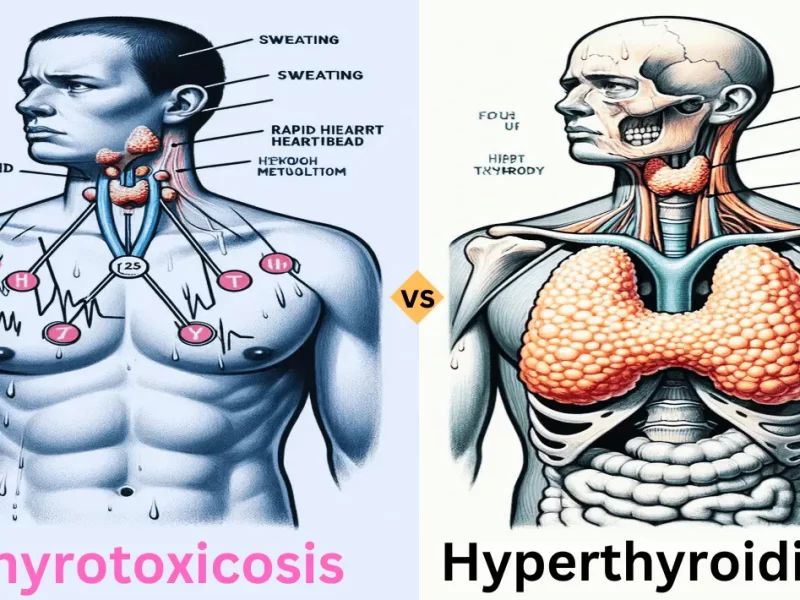Introduction
Amnesia Dementia and Alzheimer’s are neurological conditions that primarily affect memory and cognitive functions. Amnesia refers to the temporary or permanent loss of memory caused by factors like trauma or disease, without necessarily affecting other cognitive functions. Dementia is a broader term that encompasses a range of symptoms, including memory loss, difficulty in thinking, problem-solving, and language changes; it’s a result of various diseases and injuries. Alzheimer’s is a specific type of dementia characterized by the degeneration of brain cells, leading to severe cognitive decline. While all three conditions involve memory disturbances, their origins, manifestations, and impacts vary widely.
What is Amnesia?
Amnesia refers to the loss of memories, such as facts, information, and experiences. Unlike other forms of memory disorders, individuals with amnesia typically retain their intellectual abilities but have a deficit in recalling past events or forming new memories.

Causes of Amnesia
The main causes of amnesia include:
- Traumatic Brain Injury (TBI): Resulting from a severe blow to the head.
- Cerebral Infections: Such as encephalitis or meningitis.
- Stroke: Interrupted blood flow to the brain.
- Use of Certain Drugs: Especially sedatives.
- Lack of Oxygen: Conditions like heart attacks or respiratory distress can deprive the brain of oxygen.
- Tumors in the brain regions associated with memory.
Symptoms and Diagnosis of Amnesia
Amnesia can manifest as:
- Difficulty recalling past events (retrograde amnesia).
- Problems forming new memories (anterograde amnesia).
- Confusion or disorientation.
To diagnose amnesia, doctors employ cognitive tests, neurological exams, and brain imaging like MRI and CT scans.
What is Dementia?
Dementia is a general term that describes a group of symptoms affecting memory, thinking, and social abilities severely enough to interfere with daily life. It’s not a specific disease but represents a range of symptoms associated with cognitive impairment.

Causes of Dementia
Dementia can result from various causes:
- Alzheimer’s Disease: The most common cause.
- Vascular Dementia: Occurs after a stroke.
- Lewy Body Dementia: Due to abnormal aggregates of protein in the brain.
- Frontotemporal Dementia: Resulting from the degeneration of nerve cells in the frontal or temporal lobes.
- Huntington’s Disease: A genetic disorder.
- Brain Injuries or Tumors.
Symptoms and Diagnosis of Dementia
Symptoms vary based on the cause, but common signs include:
- Memory loss.
- Difficulty communicating.
- Trouble with complex tasks.
- Impaired judgment.
- Disorientation or confusion.
Diagnosis involves a combination of physical examinations, blood tests, brain scans, and neuropsychological tests.
What is Alzheimer’s?
Alzheimer’s disease is a degenerative brain disorder leading to the gradual loss of cognitive abilities, notably memory and reasoning. It’s the most common cause of dementia in older adults.

Causes of Alzheimer’s
While the exact cause is unknown, it’s believed to result from:
- Brain Protein Malfunctions: Leading to plaques and tangles.
- Genetic factors.
- Environmental and Lifestyle Factors: Such as head injuries, exposure to toxic substances, and even certain viral infections.
Symptoms and Diagnosis of Alzheimer’s:
Alzheimer’s often begins with mild memory loss and progresses to significant cognitive impairment. Symptoms include:
- Forgetting recently learned information.
- Difficulty solving problems.
- Losing track of time.
- Misplacing things.
- Mood and personality changes.
Diagnosis is based on medical evaluations, mental status testing, and brain imaging.
Comparison Table of Amnesia Dementia and Alzheimer’s
Below is the comparison table of amnesia, dementia and alzheimer’s:
| Attribute | Amnesia | Dementia | Alzheimer’s |
|---|---|---|---|
| Definition | A condition marked by a loss of memory, often due to brain injury, disease, or psychological trauma. | A broad term describing a range of symptoms associated with cognitive impairment, affecting memory, thinking, and social abilities. | A degenerative brain disorder and the most common form of dementia, resulting in memory loss, cognitive decline, and behavioral changes. |
| Primary Symptom | Memory Loss | Cognitive Impairment | Progressive Memory Loss and Cognitive Decline |
| Causes | Brain injury, stroke, certain medications, lack of oxygen, infections. | Various: Alzheimer’s disease, stroke, brain injuries, Lewy body disease, etc. | Plaques and tangles in the brain, genetic factors, environmental and lifestyle factors. |
| Onset | Can be sudden, depending on the cause. | Gradual, worsening over time. | Gradual, with symptoms intensifying over time. |
| Duration | Can be temporary or permanent. | Typically progressive and long-term. | Chronic and progressive; continues to worsen over time. |
| Treatment | Addressing the underlying cause, cognitive therapy, medications (in some cases). | Based on the cause: medications, cognitive therapy, lifestyle changes. | Medications to manage symptoms, cognitive therapy, and lifestyle modifications. |
This table offers a generalized comparison. Individual experiences and symptoms can vary, and medical advice should be sought for specific diagnoses and treatments.
How These Conditions Impact Lives
How Amnesia, Dementia, and Alzheimer’s Impact Lives
The consequences of neurological disorders such as Amnesia, Dementia, and Alzheimer’s extend far beyond the individual suffering from the condition. The challenges faced by these individuals are often profound, affecting various aspects of their life and the lives of those around them.
Amnesia:
- Loss of Personal Identity: For someone with amnesia, particularly retrograde amnesia, there may be significant chunks of their past that become inaccessible. This can lead to feelings of confusion and loss of personal identity.
- Difficulty in Daily Tasks: Tasks that rely on memory, like recalling names, faces, or even more routine tasks like cooking a familiar meal, can become challenging.
- Strain on Relationships: Friends and family may feel hurt or ignored if the person doesn’t recognize them or remember shared experiences.
- Safety Concerns: Forgetting essential details can lead to situations that jeopardize the individual’s safety, such as forgetting to turn off an appliance.
Dementia:
- Loss of Independence: As dementia progresses, the ability to perform everyday tasks diminishes, leading to increasing dependence on caregivers.
- Personality Changes: Individuals may exhibit mood swings, increased agitation, or even aggressive behavior that’s uncharacteristic of their former self.
- Social Isolation: Difficulty in communication and comprehension can lead to withdrawal from social situations, intensifying feelings of loneliness.
- Economic Impact: Medical care, treatments, and potentially long-term care can lead to significant financial strain.
- Caregiver Stress: The challenges of caring for someone with dementia can be emotionally, physically, and mentally taxing for caregivers, leading to burnout.
Alzheimer’s:
- Progressive Decline: Alzheimer’s is a progressive disease, meaning symptoms get worse over time. This continuous decline impacts not just memory, but also cognitive and motor functions.
- Loss of Recognizing Loved Ones: One of the most heartbreaking aspects for families is when the individual no longer recognizes close family members.
- Vulnerability: As judgment and cognitive abilities decline, the person becomes more susceptible to scams, accidents, and injuries.
- Behavioral Challenges: Repetitive behaviors, wandering, sundowning (increased confusion and agitation in the evenings), and sleep disturbances can be challenging to manage.
- End-of-life Challenges: In advanced stages, individuals might need assistance with all daily activities and can experience significant health complications.
All three conditions can lead to a considerable restructuring of daily life, routines, and roles within families. Adaptations are necessary, not just for those diagnosed but also for their loved ones. Awareness, understanding, and community support play crucial roles in navigating the challenges these conditions present.
Treatment Options and Coping Strategies

Treatment Options and Coping Strategies for Amnesia, Dementia, and Alzheimer’s:
Amnesia:
Treatment Options:
- Occupational Therapy: To help relearn skills and adopt techniques to compensate for memory loss.
- Memory Training: Techniques to improve memory, such as the use of mnemonics, note-taking, or electronic organizers.
- Medication: In some cases, especially if the amnesia is due to a medical condition, specific medications might be prescribed.
- Treatment of Underlying Cause: Addressing the root cause of amnesia, be it a brain injury, infection, or other factors.
Coping Strategies:
- Routine Maintenance: Keeping a consistent routine can help reduce confusion.
- Reminders: Using sticky notes, alarms, and calendars.
- Emotional Support: Engaging in support groups or therapy to cope with the emotional distress of memory loss.
Dementia:
Treatment Options:
- Medications: Drugs like cholinesterase inhibitors can help manage symptoms for some.
- Cognitive Behavioral Therapy: To manage mood and behavior problems.
- Physical Activity: Regular exercise can help slow symptom progression.
- Nutritional Counseling: Proper nutrition can play a role in managing symptoms.
- Alternative Therapies: Some might benefit from music or art therapy.
Coping Strategies:
- Clear Communication: Using simple sentences, maintaining eye contact, and reassuring gestures.
- Safe Environment: Removing trip hazards, installing locks, and using devices that help locate lost patients.
- Routine: A consistent daily routine can be comforting.
- Join Support Groups: Both for the individual and caregivers.
Alzheimer’s:
Treatment Options:
- Medications: Drugs like Donepezil or Memantine can help with symptoms.
- Cognitive Stimulation: Engaging in activities that stimulate the brain, such as puzzles.
- Music and Pet Therapy: Can offer comfort and reduce agitation.
- Physical Exercise: Maintains good blood flow to the brain and can reduce some of the symptoms.
Coping Strategies:
- Routine: Consistency can reduce confusion.
- Memory Aids: Using devices like smartphones or notebooks to keep track of daily tasks.
- Maintain Social Connections: Socializing can be beneficial for mental well-being.
- Safe Living Environment: Ensure the home is safe from hazards and is equipped with security measures like alarms.
Across all these conditions, early diagnosis is crucial, as it provides a better chance of benefiting from treatment. Additionally, the support of loved ones, caregivers, and professionals plays a critical role in managing and coping with these conditions.
Conclusion
Amnesia, Dementia, and Alzheimer’s, though interconnected, are distinct in their manifestations and causes. It’s crucial to understand their differences for accurate diagnosis and appropriate care. By raising awareness, we can foster empathy and better support affected individuals.



